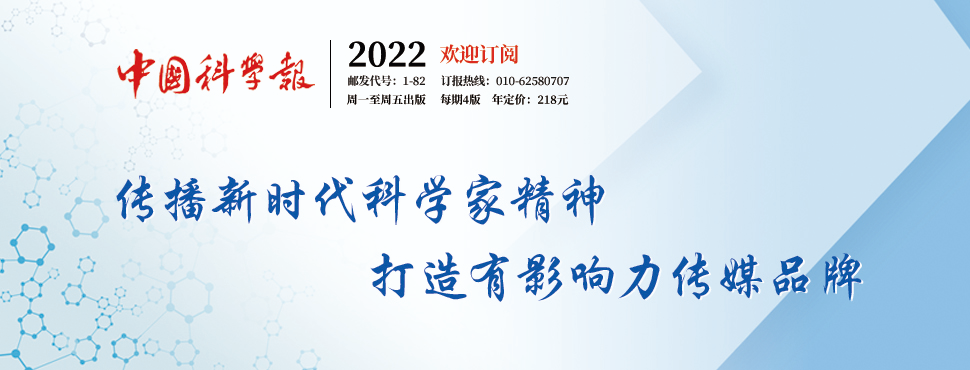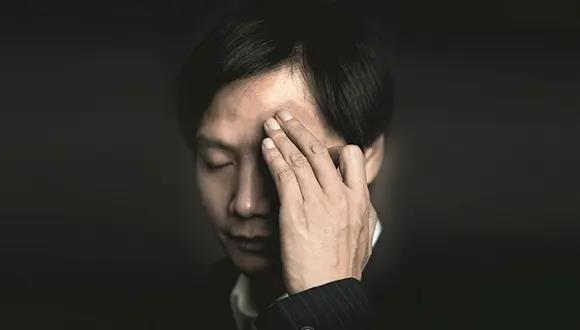Salary is reduced for more than 100 hours a week?Nature: 65%of the post -doctoral after PUA
Author:Scientific network Time:2022.08.28
Text | "China Science News" reporter Zhang Qingdan
"What spam did you send me yesterday? Are you crazy? Do you want me to fire you?"
A doctoral student looked away from the computer screen. His mentor and the head of a chemical engineering laboratory in the United States roared at him at the online meeting, and rebuked his work plan in detail. Then, the instructor shared his own screen, wrote an email on the spot, and issued a instruction to terminate the student's authority to enter the laboratory.
The above incident occurred in November 2020. In addition, there was a series of videos that recorded the authoritative scholar to yell at his students repeatedly, derogatory him in front of his colleagues, and threatened to reduce his income.
On August 10, Nature published related articles in the professional column, telling about doctoral students and postdoctoral post -doctoral abuse, threats, long working hours, and economic exploitation of doctoral students working abroad.
The life of this group is really difficult. Poor work guarantee, low wages, and fierce competition for long -term positions often make them fantasy. A survey conducted by more than 2,000 scientific researchers (mostly doctoral students or postdoctorals) in the world in 2021 found that most of them have witnessed or experienced bullying of authoritative scholars.
Bullying behavior is becoming more and more common in the academic world
The unlucky doctoral student at the beginning came from the Middle East. He told Nature that he usually worked for 13 to 14 hours a day during his reading. In addition to literature retrieval, project planning and laboratory work, his mentor also asked him to make bookshelves, count the laboratory inventory and cleanliness.
As a newcomer, he thought it was normal at first. But a few months later, he began to have deep doubts about the mentor. "One day, the instructor called me to the office and scolded me for two hours. Later that day, he scolded me and another foreign doctoral student for 5 hours. Update the list of chemicals, etc., and ask me to extend the working time, and work more on the weekend. In the end, I feel that my head is going to explode. I just want to escape here. "
One of his female colleagues said that once she was watching a text message sent by a friend, the instructor quietly walked behind her and accused her of inefficient work. "I can never forget his tone at the time, and he looked like he roared from behind."
In a complaint document submitted to the school, she said, "From that day, when he was with me, I would be very anxious, nervous, and scared, because he always jumped into the 'laboratory or office suddenly, accusing accusations of accusations I don't work hard at work. "
Such bullying behaviors have long been common in academia.
In 2019, a study published by the Max Planck Society (MPS) of the largest scientific research academic organization in Germany showed that 10%of the more than 9,000 respondents working in its 86 research institutions have stated that they have been in the past 12 months. He has suffered bullying. In 2020, Nature's survey of post -doctoral researchers around the world showed that 65%of people had encountered power imbalance/bullying.

The results of Nature's investigation in 2020 showed that 65%of the postdoctoral interviews encountered power imbalance/bullying. Picture source: nature
Five young scientific researchers from Nature interviewed from Nature described to varying degrees of exploitation, long working hours, and economic exploitation. But they are unwilling to disclose their names because they are worried that they will harm their careers or have been retaliated by mentors.
There are very few courage to reporters, which has even encouraged bullying.
In October 2021, Morteza Mahmoudi, a nano -scientist at Michigan State University, and a survey of more than 2,000 scientific researchers (mostly doctoral students or postdoctorals), a research personnel of more than 2,000 scientific researchers in the world, showed that Most of them have witnessed or experienced bullying of authoritative scholars.
However, only 29%of people report to their institutions. People who did not report bullying stated that they were afraid of being retaliated.
Visa becomes a weapon to control them
No one has the right to blame those who are bullied, because their situation is very difficult.
MAHMOUDI and MOSS pointed out that the key to the problem is the power gap between the chief researcher (PI) and youth scientific researchers.
One of the main reasons for this imbalance of power is the control of academic managers' immigration status. MOSS believes that power is too concentrated in the hands of the person in charge of the laboratory, making the laboratory a fertile soil that abuses power.
"And the differences between the power between international scientific researchers and their mentors are more different from the power between domestic researchers and mentors." Mahmoudi said. In this regard, Christopher Hayter, a researcher at Higher Education and Scientific Policy of Arizona University, deeply agrees that he said that the foreign identity of this group makes them easier to encounter bullying.
The visa has become a weapon for the instructor to take the weapon of foreign students.
As the doctoral student from the Middle East country said, his mentor bullied him and another female doctoral student from the Middle East, but did not bully other members of other teams. Just because they hold a single F-1 visa in the United States, the instructor has the right to decide whether they can stay, and they can only be forced to endure bullying. The two students said that they had to work for a long time and often attended meetings for a very early or late meeting after receiving temporary notifications on weekends. An American colleague refused to work outside the contract or attend weekend meetings, but it was safe.
"Our PI has also created this high -pressure environment in the laboratory. You will see that foreign doctoral sleep sleeps on the floor of the laboratory and works more than 100 hours a week. Pi uses these people." Another interviewed interview Post -doctoral said.
A biomedical researcher from China said in an interview with Nature that in his postdoctoral American university, the salary paid to international researchers was less common than American researchers.
In 2012, when the person in charge of his former team was bottomed out, according to the terms of the J-1 exchange visa, if he could not find a new job within a month, he had to return to China. Later, he received a second post -doctoral position in another university, but his salary was 10,000 US dollars less than his previous $ 46,000, and he had no choice but to accept it.
"There is a series of salary standards, but the postdoctoral post -doctoral and post -doctoral post -doctoral of India and China are at a low end." He said, "My friend is a postdoctoral chemistry and a Chinese, with an annual salary of 28,000 US dollars. The annual salary of Americans is about 39,000 annual salary of about 39,000 More than $ 40,000. "
The reason why he received a lower salary was because his mentor promised to help him get a safer work visa for H-1B graduates. "Visa is a big problem, which means that your mentor can control you and let you do anything they want to do."
In a study published by Hayter in 2018, Hayter reported the case where foreign post -doctoral after doctors worked for more than 100 hours a week in the United States. These cases were related to the visa renewal.
In many leading countries, young researchers from other countries have played an increasing role in research. For example, the post -doctoral ratio holding a temporary visa in the United States increased from 39%in 2009 to 56%in 2019, while research assistants who were working in the UK but born in other places rose from 43%in 2013 to 50%in 2021 Essence
This is a huge group, and most of them are likely to suffer in silence.
It's time to fight back
So, what can you do to better protect international researchers?
Those who told Nature that they were bullied when they were working abroad, and a good starting point was to understand their rights. For example, policies stipulated in the graduate school or teacher website and employment contracts include information such as working hours and holidays.
A respondent said: "I think most bullying behaviors occur because foreign students from different cultural backgrounds do not know whether there are detailed laws and regulations to protect their rights. learn."
Many bullying people will not file a complaint because they are worried that others will not believe themselves. In this way, the collection of evidence is very important.
"I suggest those who feel bullied began to try to collect evidence." Said the doctoral students from the Middle East country. Ironically, he was saved by the epidemic.
During the epidemic, the instructor moved the group to the online meeting, so that they could record the bullying behavior of the mentor and complained to the university management department. "If there is no evidence, I will still be trapped in his laboratory."
He also emphasized that foreign researchers sometimes only interact with people from the same country or other foreigners, which may make them isolated and unaware of their rights. One of the reasons why local researchers are not easy to be bullied is that they usually have a good news and can get better assistance when there is a problem.
"As an international student, we only care about ourselves." Said the female doctoral student from the Middle East country. "Later, we found that there are many kind and upright people in the school willing to help us. We should not be afraid to talk and seek help with others."
Mahmoudi believes that before the severity of the problem has received wider attention, university leaders and higher education policy makers will not take necessary measures to eliminate bullying behaviors. He said that researchers, academic journals, universities, funding institutions and academic groups need to do more work to highlight this problem.
Fortunately, in recent years, funding institutions have actively adopted corresponding measures to combat bullying and harassment.
For example, in 2018, Wellcom, a biomedical research charitable institution in London, Britain, issued a policy of cracking down on bullying. The organization that apply for funding from Wellcom must confirm that the main applicant "has no allegations about bullying or harassment."
In March of this year, WellCome reported that from the policy to September 2021, 39 bullying or harassment allegations related to the organization funded by its funding had been received, and seven of the cases were imposed on sanctions.
At present, many universities have also formulated a policy against bullying, but Mahmoudi believes that the need for fair national institutions and even international institutions to conduct a fair investigation of complaints. Other interviewees said that if they do not fundamentally change the evaluation and incentive methods of senior scientists, the phenomenon of bullying and exploiting foreign young scientific researchers will continue to exist.
The researchers from China agreed. "The criterion for judging the professor is how many papers, influence factors they have published, and how much funds they have received for their institutions. Perhaps they should also evaluate their teaching level and whether they are trying to cultivate next generation of scientists."
Reference link:
https://doi.org/10.1038/d41586-02155-3
https://doi.org/10.1038/d41586-02142-8
Edit | Fangyuan
Capture | Guo Gang
= PNG "Data-NickName =" Science Network "Data-Alias =" ScienceNet-Cas "Data-Signature =" In-circle major events, industry insights, occasionally gossip ... produced by the world's largest Chinese science community, Chinese Science News Agency.We: [email protected]; submitting [email protected]. "Data-from =" 0 "data-is_biz_ban =" 0 " /> Cooperation matters: [email protected]
Submission: [email protected]

Like this article?Praise + watch support!


- END -
Grandpa Qing Jie!27 years of "Old Antique" IE browser withdrawn from the countdown

As the preview of this, the upcoming June 15 is tomorrow, Microsoft will stop supp...
Xiaomi's mobile phone business falls down, will the new hope of Cheng Lei Jun be built?

Radar finance produced | Meng Shuai editor | ShenhaiRecently, the chairman and CEO...